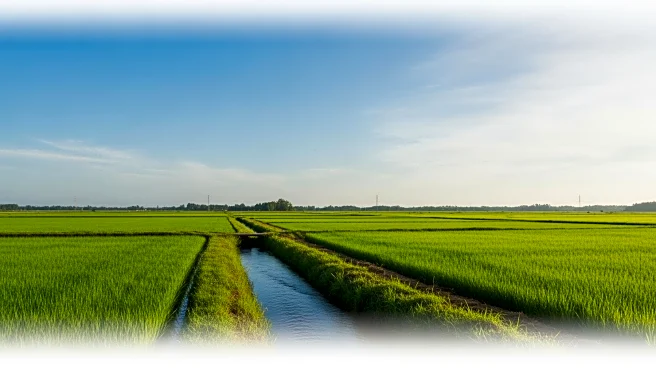What's Happening?
In Tamil Nadu, India, approximately 500 acres of samba paddy crops have withered in the Thiruverumbur block, causing concern among local farmers. Agriculture experts suspect that polluted water may be the cause of the crop damage. The affected areas include
Vengur and Pazhanganankudi villages, where the commonly cultivated CR 1009 variety, known for its resistance to pests, has suffered significant damage. The Tamil Nadu Pollution Control Board is expected to investigate the potential water pollution. Local agriculture officials and scientists from the Krishi Vigyan Kendra have inspected the fields and are set to recommend remedial measures.
Why It's Important?
The damage to samba paddy crops poses a significant threat to local agriculture and the livelihoods of farmers in the region. If water pollution is confirmed as the cause, it could indicate broader environmental issues affecting agricultural sustainability. The situation underscores the importance of monitoring and managing water quality to prevent similar incidents in the future. Additionally, the response from local authorities and the effectiveness of remedial measures will be crucial in mitigating the impact on farmers and ensuring food security in the region.
What's Next?
A meeting with affected farmers is scheduled to discuss the issue and potential solutions. The Tamil Nadu Pollution Control Board's investigation will be critical in identifying the source of pollution and preventing further contamination. The findings could lead to policy changes or increased regulatory measures to protect agricultural lands from environmental hazards. The situation may also prompt discussions on sustainable farming practices and the need for improved water management systems.
















